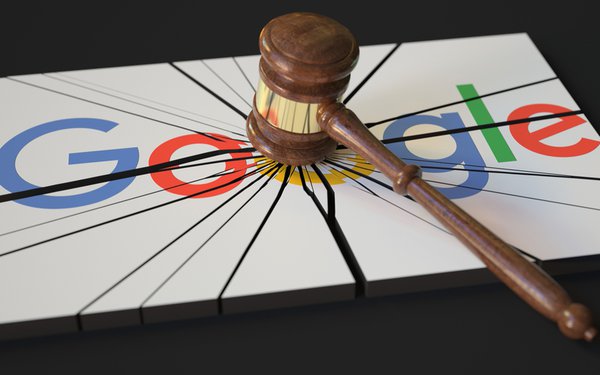
Google had a difficult day on Friday, the fifth day of its monopoly
case. At least one report suggested that the Department of Justice (DOJ) strengthened one important part of the case. The DOJ's witnesses -- some focused on engineering -- suggested it is feasible to
carry out its structural remedies.
Goranka Bjedov, a former engineer at Facebook and Google, also strengthened testimony heard Thursday from Jon Weissman, a professor of computer science at
the University of Minnesota, who testified as an expert witness for the DOJ on the technical feasibility of all the proposed divestitures.
Bjedov contradicted Google's claims that such a task
would not be feasible, reported Courthouse News Service.
"I'm just saying that 80 engineers can get this done," Bjedov said. She added that the engineers should be competent, but said:
“I’m not asking for geniuses."
advertisement
advertisement
During the first week of the trial, Google's lawyers disputed the claim by others that a divestiture of Ad Exchange (AdX) and DoubleClick For
Publishers (DFP) is possible, would destroy the advertising process. For starters, those products no longer exist. In mid-2018, those products were folded into Google Ad Manager.
Bjedov told
the court, in no uncertain terms, that the DOJ’s divestiture remedies are "eminently solvable puzzles,” wrote policy expert Jerry Cayford, reporting on the trial in the Big Tech On Trial
newsletter. She estimated how many engineers would be needed, and described the four steps.
Goranka Bjedov, a former engineer at Facebook and Google, also strengthened testimony heard Thursday
from Jon Weissman, a professor of computer science at the University of Minnesota, who testified as an expert witness for the DOJ on the technical feasibility of all the proposed divestitures.
Bjedov contradicted Google's claims that such a task would not be feasible, reported Courthouse News.
"I'm just saying that 80 engineers can get this done," Bjedov said. She added that the
engineers should be competent, but said: “I’m not asking for geniuses."
During the first week of the trial, Google's lawyers disputed the claim by others that a divestiture of Ad
Exchange (AdX) and DoubleClick For Publishers (DFP) is possible, would destroy the advertising process. For starters, those products no longer exist. In mid-2018, those products were folded into
Google Ad Manager.
Bjedov told the court, in no uncertain terms, that the DOJ’s divestiture remedies are "eminently solvable puzzles,” wrote policy expert Jerry Cayford, reporting
on the trial in the Big Tech On Trial newsletter. She estimated how many engineers would be needed, and described the four steps.
Those four steps included identifying the source and its
dependencies, doing the work of adapting, reassembling and testing and then deploying the product.
She also explained the meaning of “parallelizing" so that steps could be undertaken
simultaneously. Cayford reported that she showed graphically how much they could overlap, and how long each should take.
The total time to complete the transition would be 18 months to migrate
AdX, and 24 months for the remainder of DFP after the final auction logic has been converted to open source.
This would be a disruptive scenario for Google, and perhaps advertisers, agencies
and publishers who would need to hold together their advertising and marketing businesses, ensuring the transition.
The trial will resume on Monday, September 29 with the testimony of Arnaud
Creput, chief executive officer at Equativ, followed by the conclusion of Bjedov’s testimony.
Creput managed Equativ's separation from Axel Springer group when it
became an independent, private equity-backed company in 2015.
Prebid, a nonprofit that offers publishers an alternative to Google-run auctions, is prepared to administer the final auction
logic of campaigns, with the code that makes the final determination on where and what type of ads are placed, according to Michael Racic, president of the company.
Racic confirmed that
Prebid would administer the final auction logic if the court were to order it to be open-sourced, as the DOJ has proposed.
On cross-examination, it was pointed out that the Prebid board is
controlled by Google competitors.
Racic also testified that Prebid was not in favor of removing Google from competing in the market, a source told MediaPost.